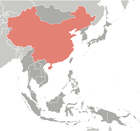Shanghai Street View: Media Milestone

The latest food safety scandal involving one of our city’s largest meat suppliers has been consuming headlines for the last week, as the story unfolds about unsavory things that happened at Shanghai Husi Food. It turns out the list of companies that were buying meat from Husi reads like a who’s-who of major foreign restaurant operators in China, including such big names as KFC, Pizza Hut, McDonald’s and Starbucks, just to name a few.
But from the perspective of a veteran journalist like myself, one of the more interesting and untold stories beyond the bigger news is the way this latest scandal was exposed. The news wasn’t broken by any of the usual suspects, including city food inspectors or investigative reporters from deep-pocketed giants like CCTV or Caijing magazine. Instead, the revelations came from an investigative reporting team here in our very own Shanghai, based out of local TV giant SMG.
As someone who has followed the Chinese media for more than a decade, I’ve slowly learned that Beijing is the 500-pound gorilla when it comes to breaking stories and conducting major investigate reporting. Guangzhou is a somewhat distant second, though its aggressive reporting teams, especially at Nanfang Media Group, occasionally also expose big scandals that become national headlines.
Shanghai, by comparison, is almost a non-player in big-news investigative reporting and usually has to satisfy itself with uncovering smaller stories, like one 2 years ago about floating blue dots discovered in some of the milk made by local food giant Bright Dairy. I don’t mean to put down our local media too much, since Shanghai’s media are probably still China’s third most advanced, though well behind Guangzhou and very far behind Beijing.
For anyone who’s been living in a cave this past week, I should probably recount the latest scandal briefly and just how it was exposed. It seems that unscrupulous workers at Husi didn’t want to dispose of expired meat, including beef and chicken, and instead took such products and mixed them with fresh meat to sell the whole package as a new product.
This dubious meat was then sold to most of the big foreign restaurant chains in town, including the ones I’ve mentioned above along with smaller chains like Papa John’s and Burger King, as well as local chicken giant Dicos. The meat also made its way out of China, and was found in McDonald’s products as far away as Japan.
It’s unclear who exactly at Husi knew what was happening, or whether anyone knew at its US parent company, OSI Group. But reports late in the week said that five people have been detained in the case, including the head of Husi and the company’s quality manager.
The case was exposed on Dragon TV, one of our city’s flagship channels, by investigative reporters who went undercover and filmed some of the unsavory practices taking place at the company. In addition to reuse of expired meat, one vivid scene showed a worker picking up a piece of meat that had just fallen on the floor and tossing it back into the queue for processing.
Within China, CCTV is probably best known for these kinds of investigative reports, which require lots of time and other reporting resources. The broadcaster has not only a huge budget to conduct such reporting, but also an unspoken mandate from Beijing to be the leader in exposing such problems in society. Caijing, Caixin, Xinhua and other Beijing-based publications also frequently break big stories that go on to make national and even global headlines.
The situation isn’t all that different in the US, where a handful of opinion-leading newspapers like the New York Times, Wall Street Journal, Los Angeles Times and Washington Post usually break the biggest stories, setting the agenda for the rest of the media to follow. But unlike China, these major US media trend setters are scattered throughout the country, and each relies heavily on networks of sources in its home market.
By comparison, Beijing has long dominated the China media scene due to its status as home to the central government and also most of the biggest state-owned companies. Shanghai media certainly try, and often do break news in the city’s vibrant financial sector. But even that news is of limited national or global interest, with the result that Shanghai sometimes feels like a bit of a media backwater despite its status as China’s financial center and one of its largest economic engines.
One major story like the Husi meat scandal certainly won’t instantly propel Shanghai onto the national media map, and now SMG and our other local players may even feel extra pressure to follow this solid piece of work with similar efforts. But at least for now Shanghai media can feel like they’ve earned a place in the national media spotlight. Hopefully they’ll continue with more similar ground-breaking efforts worthy of national and even global attention.
